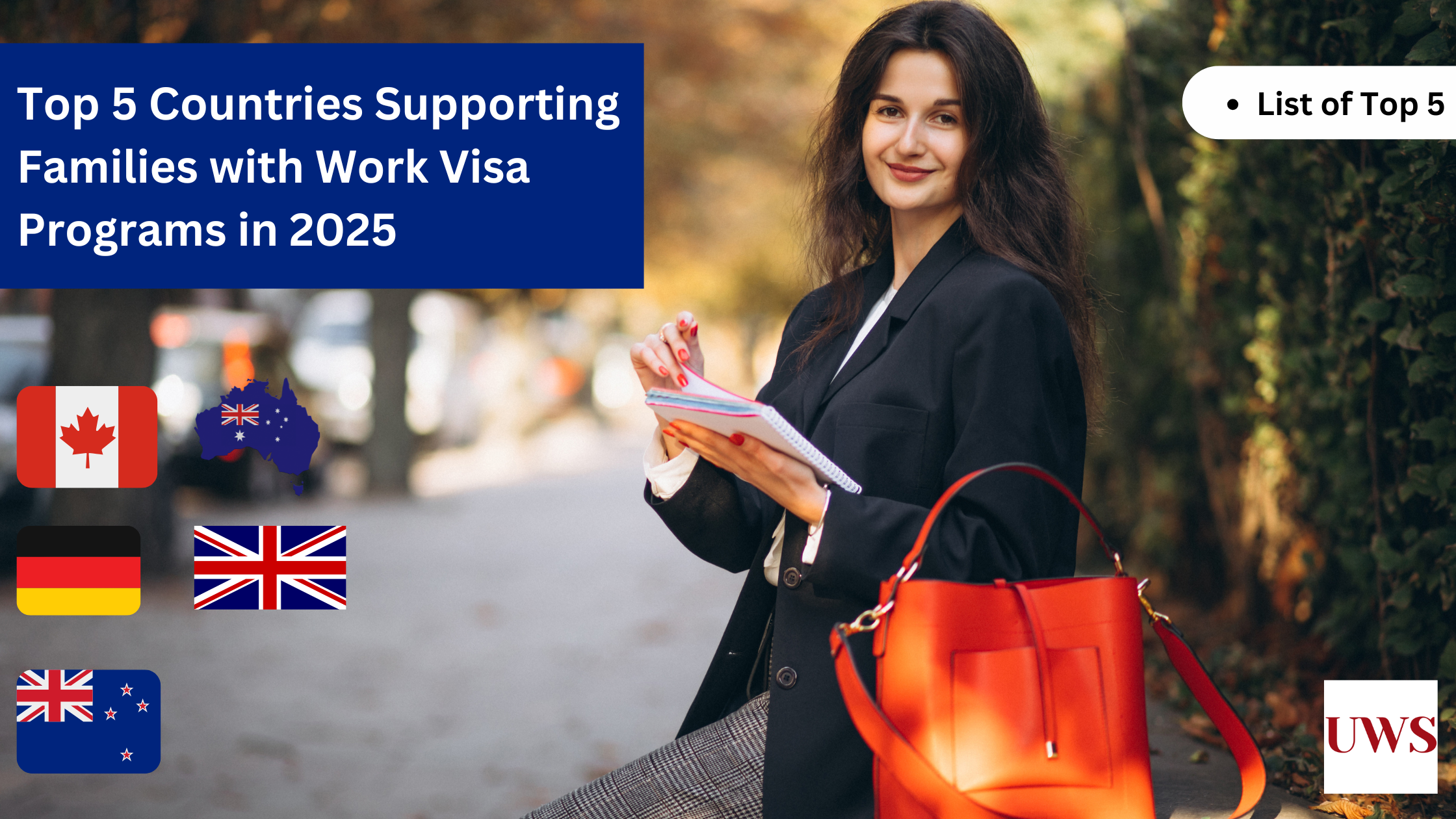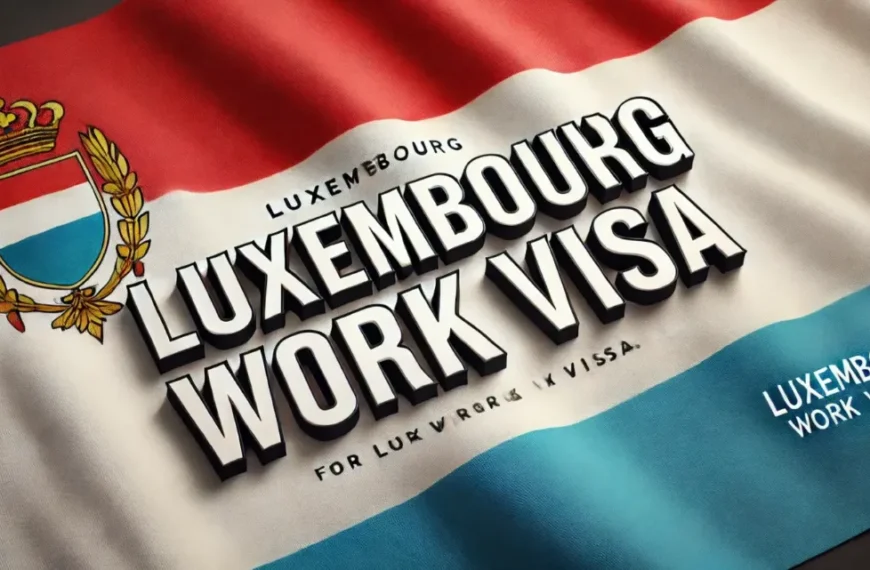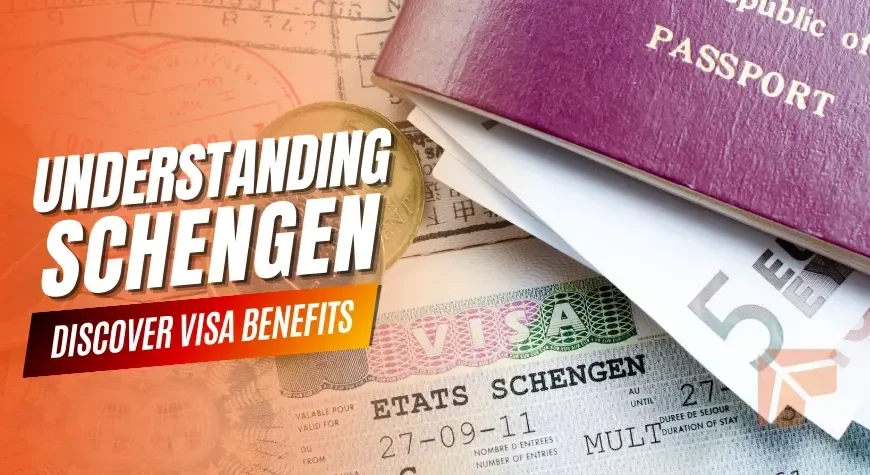In an increasingly globalized world, relocating for work is no longer just about individual opportunities; it’s about securing a better future for the entire family. Family reunification policies have become a cornerstone of modern work visa programs, allowing professionals to bring their loved ones along while providing access to essential services like healthcare, education, and employment opportunities. As 2025 approaches, several countries stand out for their family-friendly work visa policies, creating a supportive environment for global talent.
Canada: A Heaven for Skilled Workers and Their Families

Canada has long been a top choice for skilled professionals, and its work visa policies make it equally attractive for families. Programs like the Temporary Work Permit allow professionals to bring their spouses, who can apply for open work permits, enabling them to work for any employer. Additionally, children under 22 gain access to free public education and healthcare services under Canada’s universal healthcare system. This comprehensive support system ensures families can thrive together while pursuing new opportunities.
Family Benefits
- Dependents can access free public healthcare and education.
- Spouses and children under 22 can join the main applicant.
- Pathways to permanent residency and citizenship are available.
Who Can Join You?
- Spouse or common-law partner.
- Dependent children under 22 years old.
Can Family Members Work?
- Spouses can apply for open work permits.
- Dependent children may work if they qualify for their permits.
Canada’s Temporary Work Permit and other visa options provide exceptional family benefits, making it a top choice for skilled workers.
Read More: https://www.canada.ca/en/immigration-refugees-citizenship/services/visit-canada.html
Australia: Bringing Families Together with the Subclass 482 Visa

Australia’s Temporary Skill Shortage Visa (Subclass 482) is designed with family inclusion. Spouses of visa holders are granted unrestricted work rights, allowing them to pursue their careers. Children, meanwhile, benefit from subsidized education in public schools. With its excellent healthcare system and vibrant multicultural communities, Australia offers a seamless transition for families seeking to build a new life down under.
Family Benefits
- Dependents can access subsidized education and public healthcare.
- Families can apply for permanent residency after meeting specific criteria.
Who Can Join You?
- Spouse or partner.
- Dependent children of any age if financially reliant on you.
Can Family Members Work?
- Spouses can apply for open work permits.
- Dependent children may work if they qualify for their permits.
The Subclass 482 Visa supports family inclusion, offering flexibility and long-term opportunities for skilled professionals.
Read More: https://immi.homeaffairs.gov.au/
Germany: Family-Friendly Work Visas for Skilled Professionals

Germany’s EU Blue Card and Skilled Worker Visa programs are tailored to attract top talent while ensuring their families are well-integrated. Spouses of visa holders can work without restrictions, and children gain access to Germany’s renowned free education system. Families also benefit from comprehensive healthcare coverage, making Germany an attractive destination for skilled professionals prioritizing family welfare.
Family Benefits
- Access to free public education and healthcare.
- Spouses can work without any restrictions.
- Families can apply for permanent residency after meeting requirements.
Who Can Join You?
- Spouse or registered partner.
- Dependent children under 18 years old.
Can Family Members Work?
- Spouses can work full-time without restrictions.
- Children may work if they qualify under local regulations.
Germany’s EU Blue Card and Skilled Worker Visa ensure family welfare, making it a top professional destination.
Also Read: Why Australia’s CSOL Could Be a Game-Changer for Global Migration Pathways
United Kingdom: Work Visas That Offer More Than Just Employment

The UK’s Skilled Worker Visa goes beyond employment opportunities by supporting family inclusion. Dependents of visa holders enjoy full access to the National Health Service (NHS) and free education for children under 18. Spouses can work without restrictions, providing families with financial and professional flexibility. This makes the UK demanding of professionals aiming to balance career growth with family needs.
Family Benefits
- Dependents can access the National Health Service (NHS).
- Free education for children in public schools.
- Dependents can apply for permanent residency and citizenship with the main applicant.
Who Can Join You?
- Spouse or partner.
- Dependent children under 18 years old.
Can Family Members Work?
- Spouses can work full-time without restrictions.
- Children cannot work unless they qualify for their visa or meet specific criteria.
The UK’s Skilled Worker Visa is a robust option for professionals seeking family integration.
Read More: https://www.gov.uk/browse/visas-immigration
New Zealand: Welcoming Families with Open Work Visas

New Zealand’s Accredited Employer Work Visa is a family-friendly program designed to ease the transition for professionals moving to the country. Spouses are eligible for work rights, while children under 24 can access education and healthcare services. The country’s emphasis on family welfare and quality of life ensures a smooth integration for those seeking a fresh start in one of the world’s most picturesque nations.
Family Benefits
- Dependents can access free public education and healthcare.
- Families can transition to permanent residency after meeting eligibility criteria.
Who Can Join You?
- Spouse or partner.
- Dependent children under 24 years old.
Can Family Members Work?
- Spouses can work without restrictions.
- Children may work if eligible for individual work permits.
New Zealand’s Accredited Employer Work Visa offers a family-inclusive approach to relocation.
Read More: https://www.immigration.govt.nz/new-zealand-visas
Why These Work Visa Countries Are Leading the Way in Family Reunification
These five countries have recognized that supporting families is essential for attracting top talent in a competitive global landscape. By offering work visas that prioritize family welfare, they provide a compelling incentive for skilled professionals to relocate, fostering long-term stability and growth.
Brief Comparison of Countries Allowing Family Reunification in 2025
| Country | Family Members Allowed | Benefits | Can Family Members Work? |
| Canada | Spouse + Children (under 22) | Healthcare, free education, PR pathway | Spouse: Yes (Open Work Permit), Children: Limited |
| Australia | Spouse + Children (under 23) | Healthcare, free/low-cost education, PR pathway | Spouse: Yes (No restrictions), Children: Yes (age-based) |
| Germany | Spouse + Children (under 18) | Healthcare, free education, PR pathway | Spouse: Yes (No restrictions), Children: Yes (part-time) |
| UK | Spouse + Children (under 18) | Healthcare, free education, PR pathway | Spouse: Yes (No restrictions), Children: Limited |
| New Zealand | Spouse + Children (under 24) | Healthcare, free education, PR pathway | Spouse: Yes (Open Work Visa), Children: Yes (age-based) |
Conclusion: Securing a Future for Families Through Work Visas

As the world becomes more interconnected, family-friendly work visa programs are setting the standard for global mobility. Countries like Canada, Australia, Germany, the UK, and New Zealand are leading the charge by ensuring professionals and their families can thrive together. For skilled workers, these policies represent not just an opportunity for career advancement but a chance to secure a brighter future for their loved ones.














